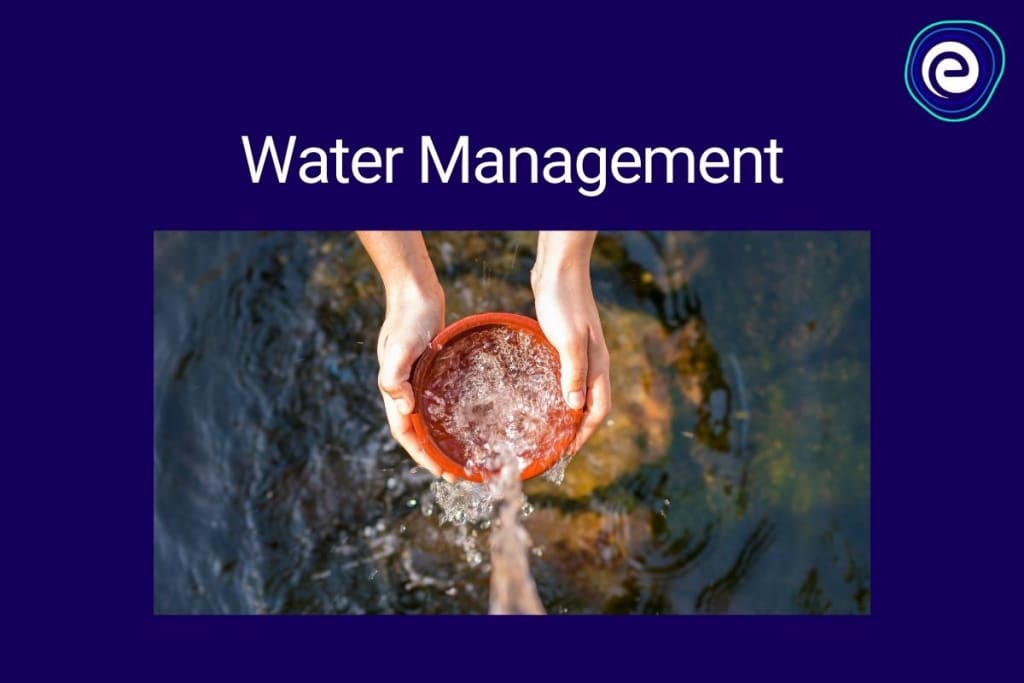
Start writing..Water management refers to the effective planning, development, and monitoring of water resources in a specific area. It involves the evaluation, conservation, and proper use of water resources to ensure a sustainable supply for domestic, industrial, agricultural, and environmental needs. Water management typically involves the construction and operation of infrastructure such as dams, canals, reservoirs, and treatment plants, as well as the regulation of water use through policies and laws. Effective water management is crucial for ensuring the availability of clean water, sustaining ecosystems, and preventing water-related disasters such as floods and droughts.The need for water management arises due to the following reasons:
1. Growing population and urbanization: As the population of cities worldwide continues to grow, there is an increasing demand for water for household, industrial, and agricultural use. This puts pressure on water resources, which need to be efficiently managed to meet the demand.
2. Climate change: Climate change can have significant impacts on water resources, resulting in floods, droughts, and changes in precipitation patterns. Effective water management is critical for adapting to these changing conditions.
3. Depletion of water resources: Overuse and mismanagement of water resources can lead to depletion, which has severe consequences for human health and the environment. Proper water management can help protect these resources against depletion.
4. Pollution: Water pollution pose a significant threat to the health of people and aquatic ecosystems. Water management helps to prevent and mitigate the impacts of pollution by monitoring and managing the discharge of contaminants.
5. Protection of aquatic ecosystems: Proper water management is crucial for ensuring the protection of aquatic ecosystems, which have far-reaching ecological and economic benefits.
6. Meeting Sustainable Development Goals (SDGs): Sustainable Development Goal 6 of the United Nations aims to ensure the availability and sustainable management of water and sanitation for all. Effective water management is critical in achieving this goal.Water management is necessary for the following reasons:
1. Ensuring adequate water supply: Effective water management ensures that there is an adequate and reliable water supply for human needs, agriculture, industry, and the environment.
2. Maintaining water quality: Water management is needed to monitor and maintain acceptable water quality standards to protect human health and aquatic ecosystems.
3. Managing water scarcity: Water management helps in managing water scarcity situations such as droughts or water shortage by implementing water conservation measures and efficient use of available water resources.
4. Managing water-related disasters: Water management is necessary to prevent or mitigate the effects of water-related disasters such as floods, landslides, and water-borne disease outbreaks.
5. Supporting sustainable economic development: The management of water resources is essential in supporting sustainable economic development, particularly in agriculture, industry, and tourism.
6. Adapting to climate change: Water management helps to adapt to the effects of climate change, such as altered rainfall patterns and increased occurrence of extreme weather events.
In summary, water management is necessary to ensure the sustainable use and protection of water resources to support human welfare and environmental protection.There are many cities in the world that are known for their excellent water management practices. Here are some examples:
1. Singapore: Singapore is a small island city-state that is known for its advanced water management system. The city has a self-sustaining water supply system that involves collecting rainwater, desalinating seawater, and recycling wastewater.
2. Copenhagen, Denmark: Copenhagen is recognized as one of the greenest cities globally, and it's often cited for its cutting-edge water management programs. The city utilizes a decentralized approach to wastewater management and uses green infrastructure projects to manage stormwater.
3. Melbourne, Australia: Melbourne has implemented an integrated water management system that combines rainwater harvesting, stormwater management, and wastewater treatment. The city has been able to reduce its water consumption significantly thanks to its innovative water management program.
4. Portland, USA: Portland has a reputation for being a leader in sustainable water management. The city has developed a comprehensive approach to water management, which includes using low-flow fixtures, managing stormwater, and promoting water conservation.
5. Berlin, Germany: Berlin is recognized for its unique water management system, which utilizes drainage channels and urban wetlands to manage stormwater and reduce the risk of floods. The city also has sophisticated wastewater treatment facilities that produce high-quality water for reuse in industries and irrigation.
These cities all exhibit sustainable water management practices, which help to ensure the availability and quality of water resources for their communities.





Comments
There are no comments for this story
Be the first to respond and start the conversation.